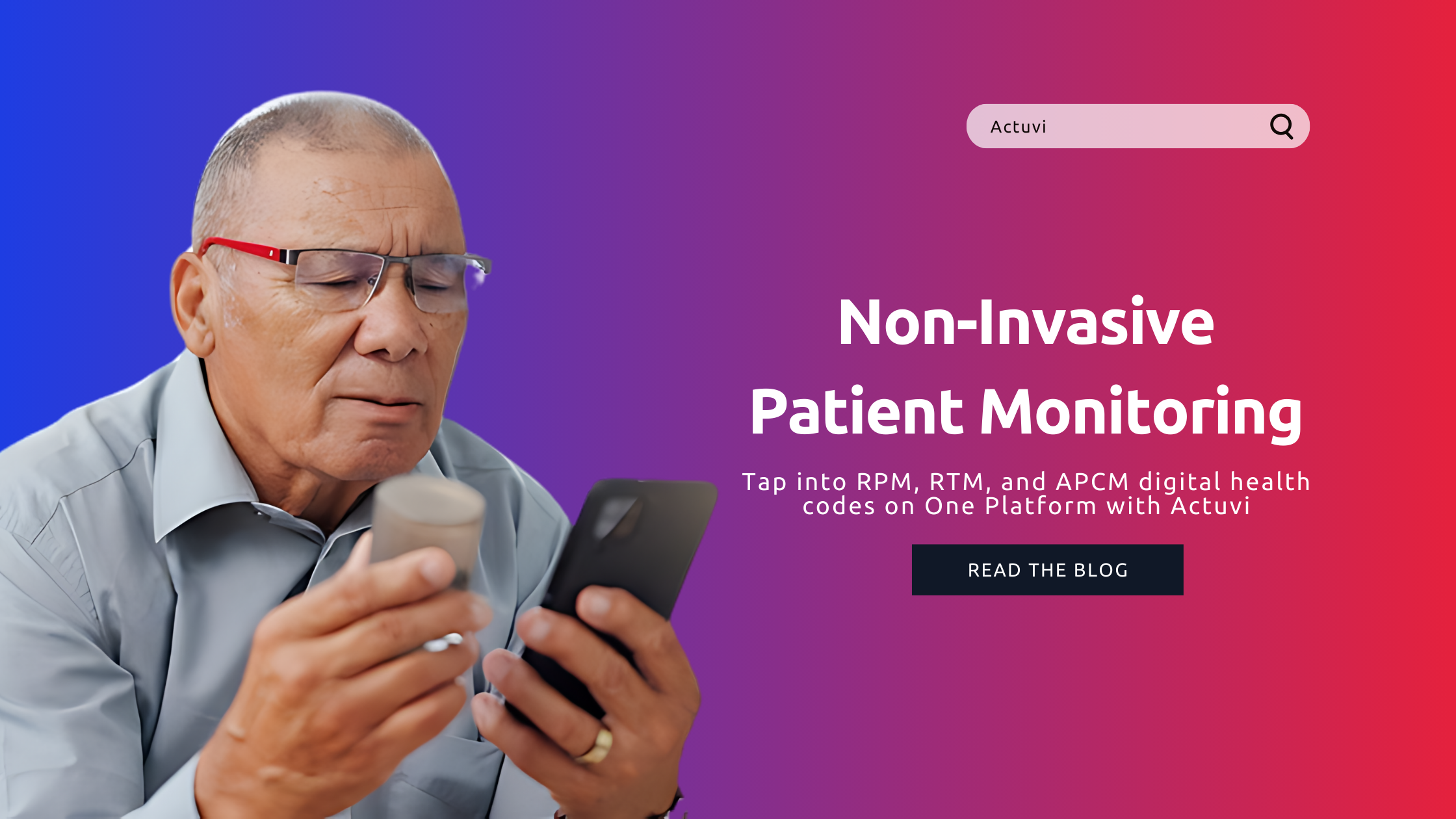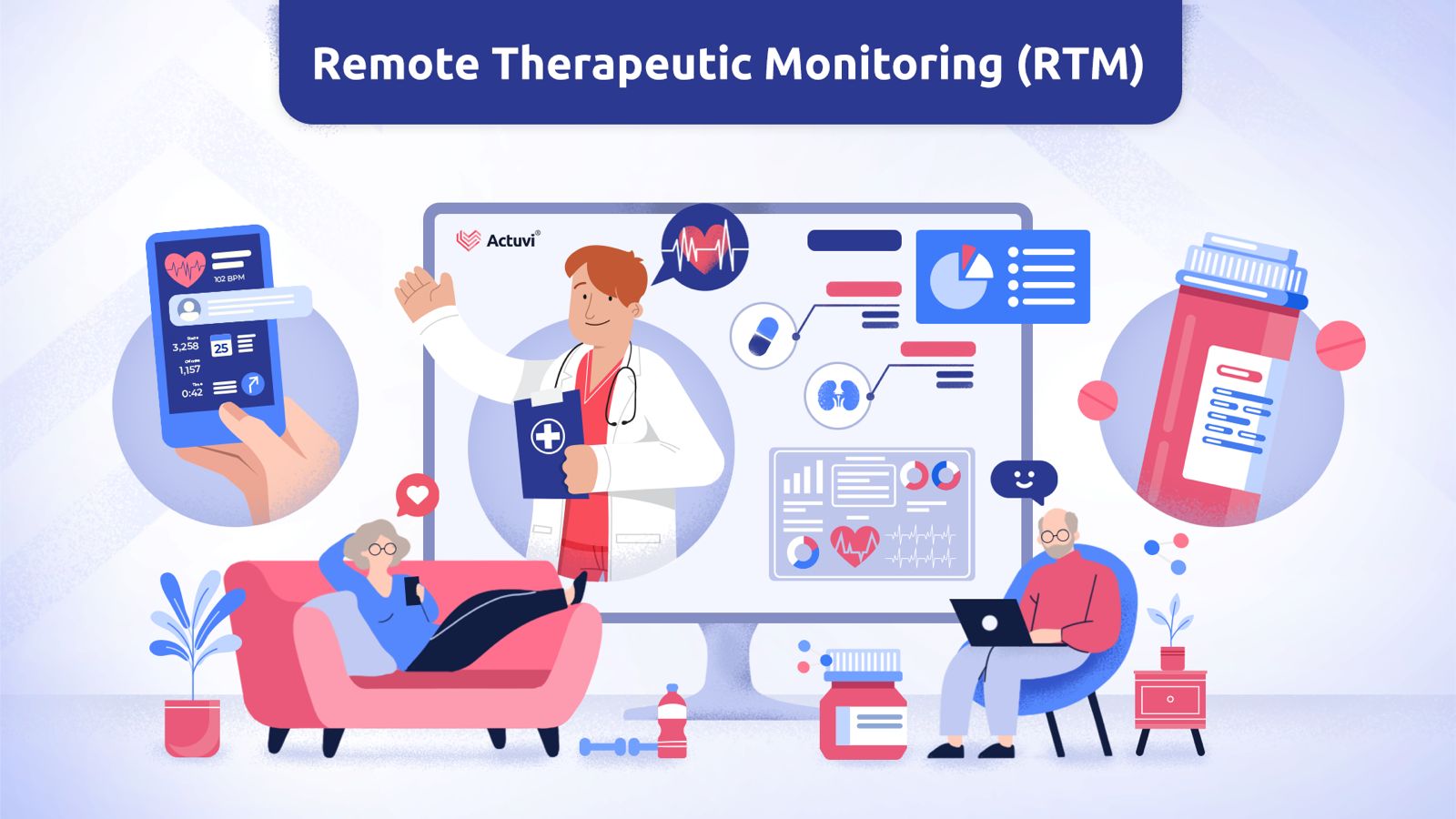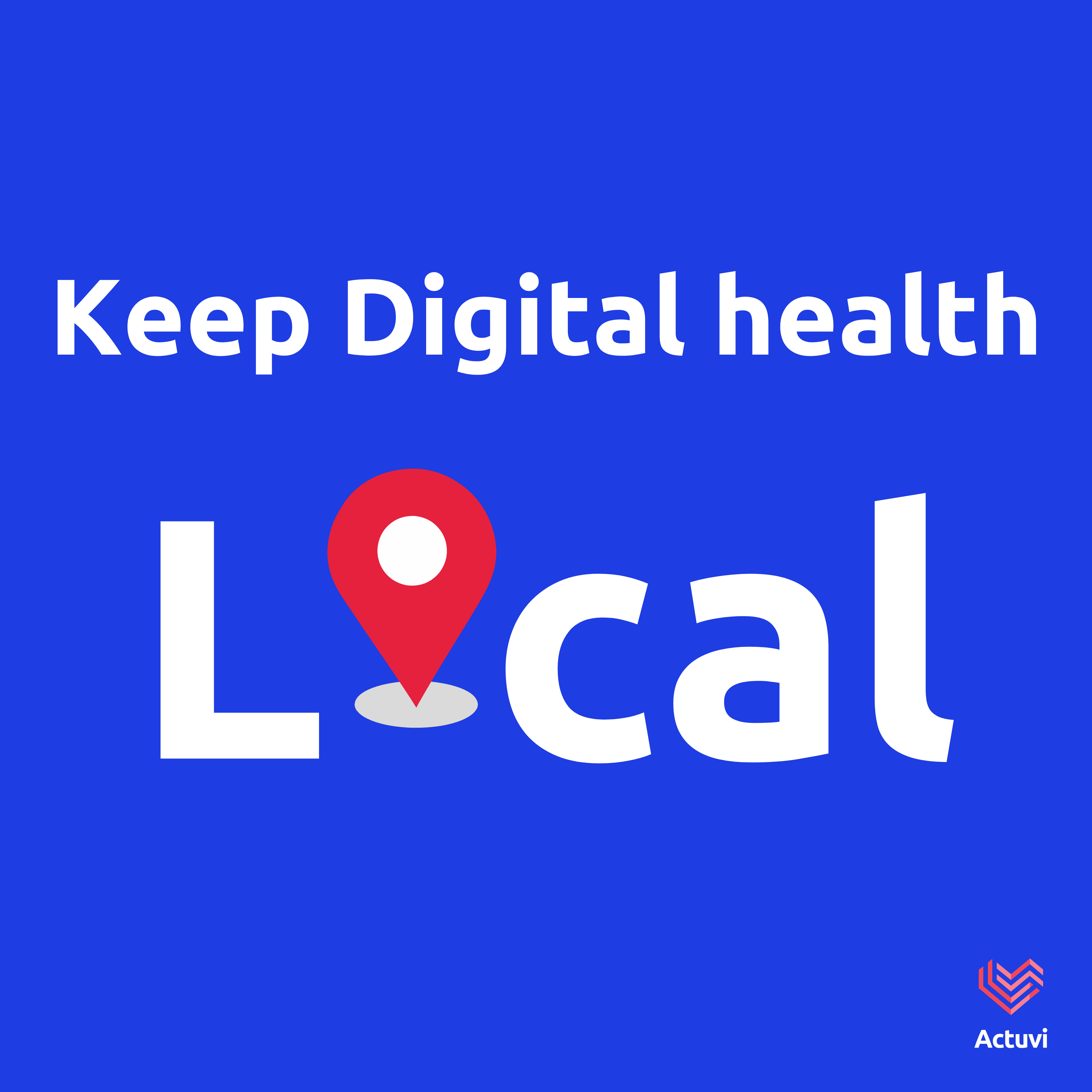Chronic pain remains a significant challenge for millions, impacting daily life and driving healthcare utilization. Pain clinics play a vital role, offering comprehensive treatment plans that combine medication, physical therapy, and interventional procedures. However, traditional approaches often face limitations in terms of patient engagement, proactive care, and maximizing revenue streams.
This is where innovative healthcare technology platforms like Actuvi emerge as partners. Actuvi empowers pain clinics to deliver exceptional care while unlocking the potential of Remote Therapeutic Monitoring (RTM) for chronic pain management.
RTM: A Powerful Tool for Proactive Pain Management:
- Beyond Data Collection: Unlike Remote Patient Monitoring (RPM), which focuses on gathering physiological data, RTM goes a step further. It allows pain clinics to collect and analyze self-reported therapeutic data directly from patients. This includes information on:
- Pain Levels and Trends: Patients can track and report their pain intensity and quality (e.g., sharp, throbbing) through a user-friendly app. This data empowers healthcare providers to identify potential flare-ups early and adjust treatment plans accordingly.
- Medication Adherence: The platform can prompt patients to log medication intake, providing valuable insights into adherence patterns. This allows for timely interventions to address non-adherence and optimize pain management.
- Treatment Response: Patients can report on their response to treatment modalities like physical therapy or interventional procedures. This feedback loop aids in personalizing care plans and maximizing treatment effectiveness.
Unlocking the Benefits of RTM for Pain Clinics:
- Improved Patient Outcomes: Proactive monitoring and data-driven insights enable healthcare providers to intervene before pain escalates. This can lead to better pain control, reduced medication usage, and potentially fewer complications.
- Enhanced Patient Engagement: RTM fosters a collaborative approach to pain management. Patients become active participants in their care, taking ownership of their pain management through self-monitoring and communication. This can lead to increased motivation and improved adherence to treatment plans.
- Streamlined Communication: The platform facilitates secure communication between patients and healthcare providers. Patients can report concerns, ask questions, and receive timely feedback, strengthening the patient-provider relationship.
Beyond RTM: Additional Advantages for Pain Clinics:
- Efficiency Gains: While automation of tasks plays a supporting role, the primary focus of Actuvi in pain management lies in RTM. The platform streamlines workflows by managing RTM data and facilitating communication, freeing up valuable time for clinicians to focus on patient care.
- Data-Driven Decision Making: The platform provides rich data insights on pain trends, medication adherence, and treatment response across the patient population. This empowers pain clinics to make informed decisions about treatment protocols, resource allocation, and overall pain management strategies.
- Potential for Increased Revenue: Actuvi facilitates billing for RTM services using appropriate CPT codes, creating a new revenue stream for pain clinics. This can help offset the costs associated with implementing the platform and ensure the long-term sustainability of pain management programs.
Actuvi empowers pain clinics to move beyond traditional pain management models. By leveraging RTM technology, pain clinics can achieve proactive care, improve patient outcomes, and unlock new revenue opportunities. This positions them for success in the evolving healthcare landscape, allowing them to deliver exceptional care to chronic pain sufferers while ensuring the financial viability of their practice.







